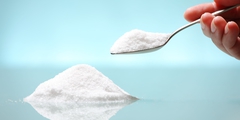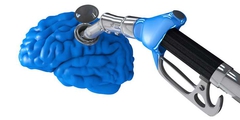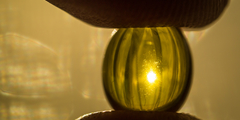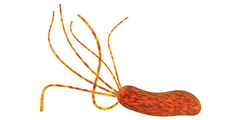
Tai chi is een zachte en meditatieve vorm van
lichaamsbeweging afkomstig uit China, in het bijzonder geschikt
voor patiënten en senioren voor wie zware sport te belastend is.
Heel wat studies bevestigen dat tai chi een bewegingstherapie
par excellence is, ondanks het groot aantal methodische
tekortkomingen waaraan ze lijden. De belangrijkste troef van tai
chi is misschien wel de hoge graad van ‘adherentie’. Beweging
moet immers prettig zijn voor de patiënt, wil je het als een
duurzame therapie inzetten, en bij tai chi blijkt de
therapietrouw van tai chi erg hoog te zijn.
Beste bezoeker, u heeft geen toegang.
Enkel (web)abonnees hebben toegang tot tijdschriftartikelen. Het webabonnement is nog in de maak.
U kunt zich wel alvast (gratis) registreren en tal van andere webartikelen raadplegen!
Auteur
Verschenen in
Referenties
Abbott R, Lavretsky H. Tai Chi and Qigong for the treatment and prevention of mental disorders. Psychiatr Clin North Am. 2013 Mar;36(1):109-19
Cavagna L, Boffini N et al. Atherosclerosis and rheumatoid arthritis: more than a simple association. Mediators Inflamm. 2012;2012:147354
Cavagna L, Caporali R et al. Overuse of prescription and otc non-steroidal anti-inflammatory drugs in patients with rheumatoid arthritis and osteoarthritis. Int J Immunopathol Pharmacol. 2013 Jan-Mar;26(1):279-81
Chi I, Jordan-Marsh M et al. Tai chi and reduction of depressive symptoms for older adults: a meta-analysis of randomized trials. Geriatr Gerontol Int. 2013 Jan;13(1):3-12
Ding M. Tai Chi for stroke rehabilitation: A focused review. Am J Phys Med Rehabil 2012;91:1091Y1096
Field T, Diego M et al. Tai chi/yoga reduces prenatal depression, anxiety and sleep disturbances. Complement Ther Clin Pract. 2013 Feb;19(1):6-10
Field T. Tai Chi research review. Complement Ther Clin Pract. 2011 Aug;17(3):141-6
Figueroa MA, Demeersman RE et al. The autonomic and rate pressure product responses of tai chi practitioners. N Am J Med Sci. 2012 Jun;4(6):270-5
Gillespie LD, Robertson MC et al. Interventions for preventing falls in older people living in the community. Cochrane Database Syst Rev. 2012 Sep 12;9:CD007146
Hernandez-Reif M et al. Attention deficit hyperactivity disorder: benefits from Tai Chi. Journal of Bodywork and Movement Therapies 2001;5: 120-3
Ho RT, Au Yeung FS et al. Tai-chi for residential patients with schizophrenia on movement coordination, negative symptoms, and functioning: a pilot randomized controlled trial. Evid Based Complement Alternat Med. 2012;2012:923925
Hui SS, Woo J, Kwok T. Evaluation of energy expenditure and cardiovascular health effects from Tai Chi and walking exercise. Hong Kong Med J. 2009 Feb;15 Suppl 2:4-7
Irwin MR, Olmstead R et al. Improving sleep quality in older adults with moderate sleep complaints: a randomized controlled trial of Tai Chi Chih. Sleep 2008;31:1001-8
Jimenez PJ, Melendez A, Albers U. Psychological effects of Tai Chi Chuan. Arch Gerontol Geriatr. 2012 Sep-Oct;55(2):460-7
Kang JW, Lee MS et al. T'ai chi for the treatment of osteoarthritis: a systematic review and meta-analysis. BMJ Open. 2011 Mar 28;1(1):e000035
Laba TL, Brien JA et al. Patient preferences for adherence to treatment for osteoarthritis: the MEdication Decisions in Osteoarthritis Study (MEDOS). BMC Musculoskelet Disord. 2013 May 6;14:160
Lam P. New horizons. Developing tai chi for health care. Australian Family Physician 1998 Jan;27(1–2):100–1
Lan C, Lai JS etal. Tai Chi Chuan: an ancient wisdom on exercise and health promotion. Sports Med. 2002;32(4):217-24 2006;87:546-53
Lee MS, Ernst E. Systematic reviews of t'ai chi: an overview. Br J Sports Med 2012;46:713-718
Lee S-H, Han C-D et al. Prescription pattern of NSAIDs and the prevalence of NSAID-induced gastrointestinal risk factors of orthopaedic patients in clinical practice in Korea. J Korean Med Sci 2011; 26: 561-567
Li D-X, Zhuang X-Y et al. Effects of Tai Chi on the protracted abstinence syndrome: A time trial analysis. The American Journal of Chinese Medicine. 2013; (41):43–57
Li F et al. Tai Chi and postural stability in patients with Parkinson’s disease. New Eng J Med. 2012; 366: 511–519
Li JX, Hing Y, Chan KM. Tai Chi: physiological characteristics and beneficial effects on health. British Journal of Sports Medicine. 2001;35:148-56
Liu Y, Mimura K, Wang L, Ikuda K. Physiological benefits of 24-style Taijiquan exercise in middle-aged women. Journal of Physiology and Anthropology Applied Human Science 2003;22:219-25
Lo HM, Yeh CY et al. A Tai Chi exercise programme improved exercise behaviour and reduced blood pressure in outpatients with hypertension. Int J Nurs Pract. 2012 Dec;18(6):545-51
Mist SD, Firestone KA et al. Complementary and alternative exercise for fibromyalgia: a meta-analysis. Journal of Pain Research 2013:6 247–260
Nguyen MH, Kruse A. A randomized controlled trial of Tai chi for balance, sleep quality and cognitive performance in elderly Vietnamese. Clin Interv Aging. 2012;7:185-90
O'Neil CK, Hanlon JT et al. Adverse effects of analgesics commonly used by older adults with osteoarthritis: focus on non-opioid and opioid analgesics. Am J Geriatr Pharmacother. 2012 Dec;10(6):331-42
Panton LB, Kingsley JD, Toole T, et al. A comparison of physical functional performance and strength in women with fibromyalgia, age- and weight-matched controls, and older women who are healthy. Phys Ther. 2006;86(11):1479–1488
Peng PW. Tai chi and chronic pain. Reg Anesth Pain Med. 2012 Jul-Aug;37(4):372-82
Redwine LS, Tsuang M et al. A pilot study exploring the effects of a 12-week t'ai chi intervention on somatic symptoms of depression in patients with heart failure. J Altern Complement Med. 2012 Aug;18(8):744-8
Schleicher MM, Wedam L, Wu G. Review of tai chi as an effective exercise on falls prevention in elderly. Research in Sports Medicine. 2012; 20:1, 37-58
Tsang W, Hui-Chan W. Effects of exercise on joint sense and balance in elderly men: Tai Chi versus golf. Medicine Science for Sports Exercise 2004;36:658-67
Tsang W, Hui-Chan W. Standing balance after vestibular stimulation in Tai Chi - Practicing and nonpracticing healthy older adults. Archives of Physical Medicine and Rehabilitation
Uhlig T. Tai Chi and yoga as complementary therapies in rheumatologic conditions. Best Pract Res Clin Rheumatol. 2012 Jun;26(3):387-98
van Eijk-Hustings Y, Boonen A et al. A randomized trial of tai chi for fibromyalgia. N Engl J Med. 2010 Dec 2;363(23):2266; author reply 2266-7
Wang C, Schmid CH et al. A randomized trial of tai chi for fibromyalgia. N Engl J Med. 2010 Aug 19;363(8):743-54
Wang C. Tai chi and rheumatic diseases. Rheum Dis Clin N Am. 2011; 37:19-32
Wei GX, Xu T et al. Can taichi reshape the brain? A brain morphometry study. PLoS One. 2013 Apr 9;8(4):e61038
Xu D, Hong Y, Chang K. Effects of Tai Chi exercise on proprioception of ankle and knee joints in old people. British Journal of Sports Medicine 2004;38: 50-4
Yan JH, Gu WJ et al.(a) Efficacy of tai chi on pain, stiffness and function in patients with osteoarthritis: a meta-analysis. PLoS One. 2013 Apr 19;8(4):e61672
Yan JH, Gu WJ et al.(c) Lack of evidence on tai chi-related effects in patients with type 2 diabetes mellitus: a meta-analysis. Exp Clin Endocrinol Diabetes. 2013 May;121(5):266-71
Yan JH, Guo YZ et al(b). Effects of tai chi in patients with chronic obstructive pulmonary disease: preliminary evidence. PLoS One. 2013 Apr 23;8(4):e61806
Yeh GY, Mietus JE, Peng CK, Phillips RS, Davis RB, Wayne PM et al. Enhancement of sleep stability with Tai Chi exercise in chronic heart failure: preliminary findings using an ECG-based spectrogram method. Sleep Medicine. 2008;9:527e36
Yeh GY, Wang C et al. Tai chi exercise for patients with cardiovascular conditions and Risk factors: a systematic review. Journal of Cardiopulmonary Rehabilitation and Prevention 2009;29:152–160
Yeung A, Lepoutre V et al. Tai chi treatment for depression in Chinese Americans: a pilot study. Am J Phys Med Rehabil. 2012 Oct;91(10):863-70





